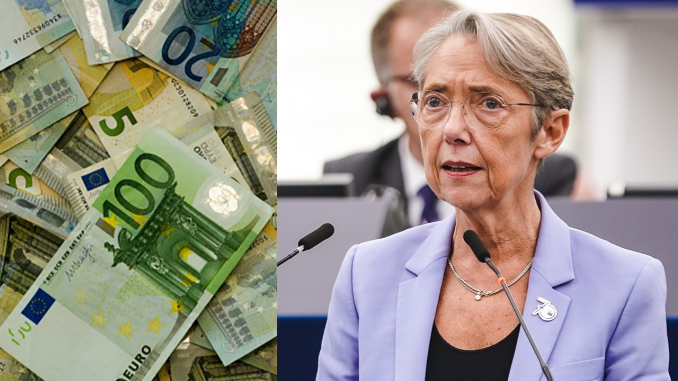
December 12, 2022, Editorial of the Workplace Newsletters of the Etincelle fraction of the NPA, Translated from French.
The destruction of the planet has made 2022 the warmest year ever recorded in France. But winter is here and the cold is setting in. For many of us, managing to keep warm will become a nagging issue. Prices are going up and eating into salaries. But for Elisabeth Borne, French Prime Minister, the emergency is pension reform, and the details should be “unveiled” on January 10.
Working More to Work More
It wasn’t enough for Elisabeth Borne to attack the unemployed, and force them to accept the worst conditions of the employers. Now that the attacks on public services have brought the hospital and the energy network to the brink of collapse, she has to dig deep into the pockets of workers.
The Prime Minister is trying to create suspense about the retirement age: 65 or 64? This is not the kind of suspense we need: whatever happens, we will have to work longer, beyond the life expectancy of good health. And it’s predicted that the extension of the contribution period will compensate for a compromise on the retirement age, or vice versa.
“They are moving retirement age back and advancing the age for death.”
We are told it is a matter of saving the pension funds from bankruptcy. Except that, in 2021, there was a surplus of funds and there will be even more in 2022: 3.2 billion euros. Only later would be a deficit, with a deficit of 17 billion. What happens next? The Retirement Council (COR), a government department, predicts that they will gradually reduce this deficit, without the need for reform. In any case, it would be 17 billion euros out of a budget of 330 billion, or only 5% of the total. Not to mention the large reserves that all the funds have today, 160 billion euros in total.
But there are facts, and then there are profits. Private pension funds have been eyeing the gigantic individual retirement savings market that has been expected to open up for some time. Secondly, raising the retirement age means making those who can, work longer. Above all, it reduces the amount of pension for those who cannot work. It also means ensuring that more workers die before they can retire, worn out by exploitation.
To sweeten the deal, the government proposed the idea of a 1,200-euro minimum pension. This is a bogus promise, because this “minimum” will only be guaranteed if the worker has contributed the maximum amount of service annuities, and these annuities of service are becoming increasingly numerous… For many people, this means they will receive the minimum old-age pension, which is currently 908 euros, and is below the poverty line. And they will still be required to apply for it.
Stand Up to the Government
If the pension funds are really in such bad shape, there is a simple solution: a 5% deficit is immediately made up for by a 5% increase in salaries, and therefore in contributions! If wages were to increase to what we need today, i.e. by at least 400 euros, there would be no more “deficit” problem. And that would solve some other problems as well, such as our monthly income!
This is obviously not an option for the government. But the government can’t forget the mobilizations in the streets in 2019 that prevented it from passing a pension reform right before the COVID crisis. So now the government is pretending to consult with union leadership, which rushed to the bargaining table before even trying to mobilize workers.
However, we all know that there is nothing to expect from these “conversations.” The Macron government knows very well what it is doing: acting on behalf of the capitalists, as it has always done. Our camp doesn’t need “conversations.” It needs a mobilization, with strikes, all together, just like we did in December 2019. This is what we must work for, starting now.




